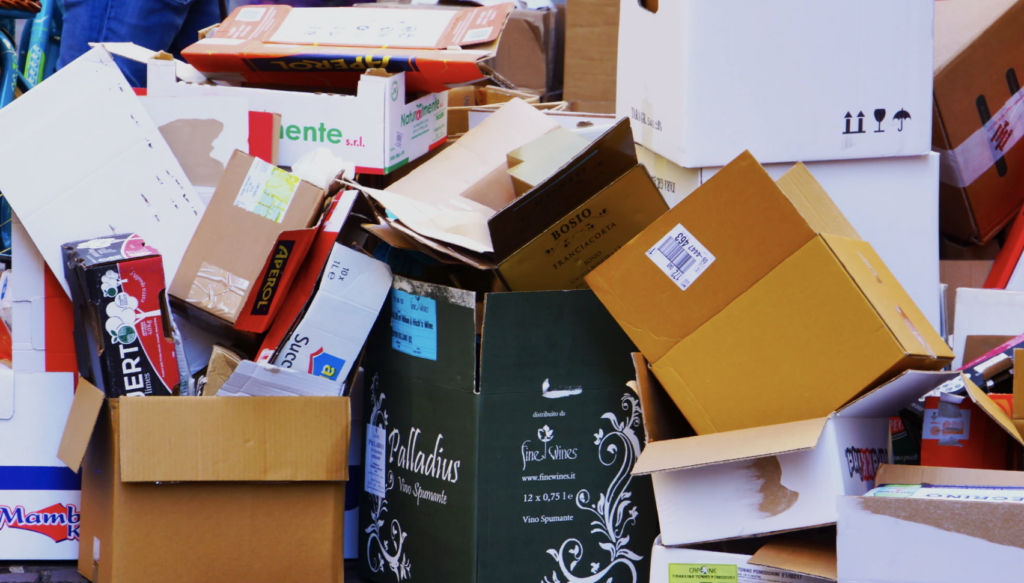
Amazon is infamous for its packaging. In 2019, Amazon had waves of criticism for introducing a range of non-recyclable packaging in the UK. They’ve had multiple controversies which has resulted in customers boycotting them. Many customers took to the internet complaining about the non-recyclable packaging which was 5 times the size of what was necessary. This was not the first or the last case. Numerous times, Amazon has responded with a statement of mission saying they are under the process to improve their packaging design. They’ve pledged to be zero carbon by 2040 and announced plans to eliminate non-recyclable plastic across India. However, many amazon buyers have come to know these promises to be empty and boycotted amazon for their packaging. This is one of the reasons why packaging needs to be regulated.

A survey released on 14 July 2020 by Oceana, the world’s largest international ocean conservation organisation depicts that more customers are buying things online due to the COVID-19 global pandemic. Everyone has dealt with the realities of these unprecedented times in their own measures. At the height of the pandemic, we saw cities globally enforcing laws to close physical non-essential stores for everyone’s safety. As a result of which, e-commerce services definitely had a surge in demand, with some of us leaning on retail therapy, both for essential and non-essential shopping. The close link of our current situation to the boom of the e-commerce businesses brings our attention to the significance of right packaging, both for attracting consumers and for environmental purposes.
More than ever, online marketing and packaging is growing increasingly important for businesses. The packaging that these consumers receive is the only tangible reference for their connection with the brand. As a measure for social distancing shipping, relationships amongst brands and consumers are mostly built online. Therefore, in order to sustain that trust, it is important to communicate credibility reflected through the packaging and limited interaction carried online. This is because for most customers it can be their first impression which oftentimes is very hard to alter afterwards.
What can businesses do to improve their packaging in a regulated way?
In the UK, according to the Packaging Regulation of 2015, all product packaging must be compliant to essential requirements as per law. Requirements such as: the packaging weight shouldn’t be above the minimum amount and each product should not have more than 100 ppm of heavy metal to maintain safety. These subjective regulations need to be consulted and managed for an improved packaging in order for them to be allowed in the market and attractive to the customer. All of this can be assessed and consulted by a responsible person to ensure a smooth procedure from the business to the consumer.

There has been multiple research showing that many consumers find product packaging almost as important as the brand themselves because for most cases it becomes a direct reflection of the company’s ethics and efforts. Therefore, the aesthetics and the extra effort in product design makes the customer feel valued. In addition to the first impression, product design is an effective asset to include specific logos certifying valuable information about the products. For example, the cosmetic certification labelled correctly and succinctly on a product makes a world’s difference in the customer’s confidence and trust in the brand. Labels such as organic or vegan claims need to be regulated and assessed accounting for all the raw materials to avoid misleading errors in packaging. The correct procedure and labels are crucial to a hassle-free and efficient business marketing for all businesses. Following the regulatory packaging measures specific to various countries is the way to an improved e-commerce business.
Some specific ways to improve the consumer response is by implementing a greener approach to the packaging. Such as what Lush has stood for many years in the ways they’ve used less packaging altogether, introduced ingredients which are biodegradable and abandoned animal testing which proves as such a massive stride for the cosmetic industry. What seems even more crucial is Lush’s lack of greenwashing which so many companies are guilty of. This is evident as they have made a lot of efforts to campaign sustainability, animal rights and benefit countries that source their raw ingredients, proving that products can be packaged in a green way while also following the packaging regulations.
Overall, packaging is more than just an environmental issue, it is about first impressions and effectively communicating brand values to attract the targeted consumers. With the right labelling and artwork approval following the official regulatory guideline, e-commerce businesses can be marketed and sold to more places.